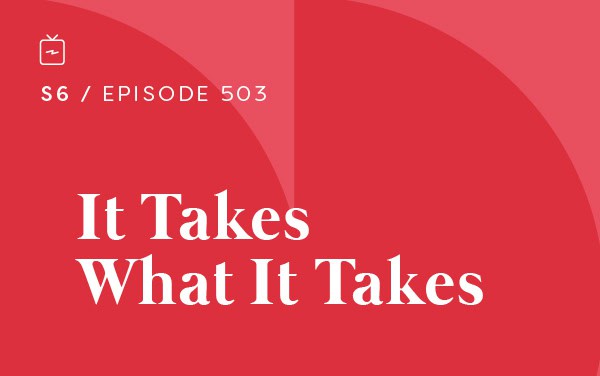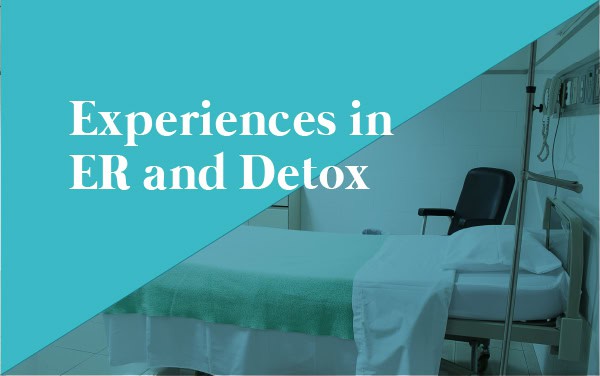
by Kris Oyen | Oct 7, 2024 | Podcast
Podcast: Play in new window | Download
Subscribe to the Recovery Elevator Podcast Apple Podcasts | | More
Episode 503 – It Takes What It Takes
Today we have Leah from Akron, OH. She took her last drink on September 4th, 2022.
Sponsors mentioned in this episode:
Better Help – code ELEVATOR
Tonight is our first session of our Ditching the Booze Mindfulness course. It will be on Monday nights at 7:30 EST for the next five weeks. This course will teach you the basics of mindfulness and mediation. It is included with Café RE membership. Visit Café RE to sign up if you aren’t already a member.
Speaking of Café RE, our community is no longer on Facebook. We have found a new home that is off social media, and it now has an app that you can find in the app stores.
[03:28] Thoughts from Paul:
The only thing harder than forgiveness is the opposite – resentments. It is important that we begin with forgiving ourselves.
It takes what it takes for you to get sober and quit drinking. There is no set pathway into and out of a drinking problem. Paul believes this is one of the reasons why alcohol-free communities are so non-judgmental, loving and accepting. Those who have quit drinking know that it takes what it takes.
Paul shares some “it takes what it takes” stories from himself and others working on their alcohol-free journey. Never quit quitting and you will find your way. It takes what it takes.
[08:20] Paul introduces Leah:
At the time of recording, Leah is celebrating 2 years alcohol-free. She grew up in Akron Ohio, she is 36 and just got married, they have a 3-month-old daughter. For fun Leah enjoys hiking, singing, hanging out with friends and spending time with her baby.
Leah shares the story of what drove her to make the decision to quit drinking. After waking up on a bench next to a river and realizing that she was barefoot and had walked over a mile in a blackout, she feared what might happen next if she continued to drink.
Leah began drinking in high school and felt that it gave her courage to be herself. She says she was always addicted to that feeling. After leaving a bad relationship to an alcoholic, Leah started dating her now-husband. He is a normal drinker and Leah felt safe with him.
Leah says over time her drinking increased and the blackouts started. She says she isn’t the same person when she drinks and would often get angry and start fights with her partner. Waking up feeling regret and shame and promising she wouldn’t do it again became commonplace for Leah.
It was Leah’s therapist through Betterhelp that suggested she check out some podcasts and that’s how Leah stumbled upon RE. She says she just started listening from the beginning and found the interviews with others very helpful and she no longer felt alone in this battle.
Leah says since quitting drinking, she has lost weight and feels better overall. The first year she struggled with boredom since drinking was her hobby. She has been working on her unresolved childhood trauma and learning how to be herself without drinking. Leah’s emotions have leveled out and she no longer gets angry as often as she used to. Leah and her husband are still able to share the same hobbies, and she now drinks NA beers. Cravings have not been a big issue for her, she remembers how bad the following days were when she would drink, and it helps her stay grounded.
In the future, Leah would like to have another child, but she is comfortable where she is right now.
Leah’s parting piece of guidance: one day at a time.
Recovery Elevator
Go big, because eventually we all go home
I love you guys
RE on Instagram
RE merch
Recovery Elevator YouTube
Sobriety Tracker iTunes

by Kris Oyen | Sep 30, 2024 | Podcast
Podcast: Play in new window | Download
Subscribe to the Recovery Elevator Podcast Apple Podcasts | | More
Episode 502 – The Tallest Tree in the World
Today we have Kurtis. He is 32 from Seattle, WA and took his last drink on October 12th, 2023.
Sponsors mentioned in this episode:
Better Help – code ELEVATOR
AG1
Paul loves pickles but doesn’t love to be in them. When it comes to drinking, this quote shows up often: “When I controlled my drinking, I didn’t enjoy it. When I enjoyed my drinking, I couldn’t control it.” That is a good example of what it is like to be in a pickle with your drinking.
DTB Mindfulness course starts Monday October 7th for 5 weeks. This course is for Café RE members only, and we would love for you to join us! Visit Café RE to sign up if you aren’t already a member.
[03:32] Thoughts from Paul:
While the tallest tree on the planet currently is a redwood but it would be the Douglas Fir if we stopped cutting them down. Scientists theorize the highest a tree can pull water up it’s roots is 480 feet and that’s how big the Douglas Fir trees were back in the early 1800’s before we began harvesting them.
Paul shares with us his love of trees and how they have helped him on his recovery journey. He also shares some facts about how indigenous people around the world are healthier than we are and how many of them use trees as a source of wholeness that cure physical ailments and mental health conditions.
When looking for connection, don’t overlook the trees in your back yard that are holding the soil in place. Nature should 100% be part of your recovery portfolio.
[10:07] Paul introduces Kurtis:
Kurtis currently lives in Seattle, WA and is originally from Detroit. He has two cats and is a musician and a mixing engineer. He says he used to use drinking as a way to be creative and says it has been interesting to figure out his relationship with music without drinking.
Kurtis says he didn’t drink much in his younger years. He took his first drink at age 21. He was in a lot of bands after moving to Seattle. He would bring beer to practice which quelled his anxiety.
After Kurtis was diagnosed with ADHD in 2020, he started taking medication that helped him focus. He admits he took more than prescribed and would then utilize alcohol to help him go to sleep. When waking up with a hangover, his medication would help him combat it. It was a vicious cycle, Kurtis says.
Kurtis knew he had issues but couldn’t determine whether it the pills or the drinking that was causing the problem. He was having a hard time going more than a few days without drinking and often found himself drinking in the morning. After failed moderation attempts, he ended up having to quit both the alcohol and the medication at the same time in October of 2023.
When he made the decision to quit, Kurtis says there were a lot of small rock-bottom moments that led him to it. Kurtis shared that it was tough quitting both things at the same time. He was worried that his productivity would decrease when he had to stop taking the medication. The drinking was slightly easier, however. Without taking the stimulant he wasn’t feeling so much anxiety at the end of the day which diminished his desire to drink.
Kurtis started finding other activities to fill his time and began to see great results. He was walking a lot, began to lose weight, and started feeling really good. He was able to recognize that quitting drinking opened up a lot of doors for him to feel better. He is more present with others and feels more confident in general.
Kurtis shares that the RE podcast has been helpful along with the Reddit Stop Drinking group. Talking about his journey with others has also helped a lot.
Kurtis’ parting piece of guidance: moderation, research and failing is all part of the process. It’s important to be kind to yourself and not feel like you have to match what others are doing.
Recovery Elevator
You took the elevator down, you got to take the stairs back up.
We can do this.
RE on Instagram
RE merch
Recovery Elevator YouTube
Sobriety Tracker iTunes

by RE Helper | Sep 15, 2024 | Alcohol Relapse, Blog, Early Sobriety, Science and alcohol, Uncategorized
Today’s blog entry is from Dan B. Dan has been a member of Café RE since January 2022. He can be found on our zoom chats and supporting fellow members of Café RE.
Experiences in the ER and Detox
By: Dan B (Café RE UP)
Both are Brutal & Dangerous: Drinking to that Level and Detox/Withdrawal by Dan B.
I’m hoping that all my experiences in ER and Detox could both be informative and a motivation not to do what I did. I used to drink enough alcohol in a binge over days to the point I was in a panic and my blood alcohol level was at a dangerous level. Alcohol energized me, raised adrenaline and cortisol, then I probably used more for hair of the dog, and for fear of withdrawal – so it all accumulated to a dangerous level, hence ambulance rides (way too many) initiated by my friend or myself seeking a friend or neighbor.
ER Experiences
In the ER, I usually asked for a benzo like Ativan, because I felt in a panic, but at a certain blood alcohol level, they cannot give you it. One time, I think they waited until my BAC was under 2.5; another time, they didn’t give me anything at all. I think I believed I was in withdrawal, but it was intoxication. Having an anxiety disorder probably factors into this.
They hook you up to IV, and put those round stickers on you, is that for heart eval? I should know by now. I think they had something on my other arm sometimes too. Sometimes they told me to keep my arm straight. One time they told me not to move. In some situations, if I got out of my bed, beeps would go off; other times, they didn’t. I was in telemetry at times, which I guess may be extra monitoring.
Various staff would come in at different times to take vitals and such. Nice, caring nurses make a huge difference in states like these. And I always thank them. They would also do a certain scan putting me into a machine, maybe because I sometimes fell before going in. I was often what they call a fall risk, so that’s why they wanted me to stay in bed.
At certain visits, they would attach something for urination. Others I would have that plastic bottle. When I had some anxious energy, I liked to walk around, but they are extremely attentive when you step an inch outside of your door.
I usually asked for a lot of water, but I think at one visit, they didn’t want me drinking too much because I guess it may eliminate some of the electrolytes via IV.
The “Fight” Out
They eventually have a counselor evaluate me via computer, in which she asks at least 30 questions. Between that and a doctor’s call, that determines if they will keep you in for days, transferred to detox. I’ve been there several times, and it’s a process just to get out.
So, in a very challenged, exhausted state, I gave my best to speak well and answer questions the right way. Because I know the decision is ultimately mine about drinking. And when you are in detox for days, you have access to nothing in terms of phone, shaving, makeup, etc. You are in scrubs. In the process of discharge, they will ask if you have support. I always said, “Oh I’m in an amazing recovery group called Café RE.
I usually have nothing in terms of glasses, my wallet, phone, keys. So there was a fear that my doors would be locked though I leave the sliding glass door unlocked a lot. They call a ride for you, and I often left in scrubs and socks. I hated going back because my neighbor often knew about the episode and is very nosy.
When Transferred to Detox (5-9 Days)
I was always pleased when I had my own room in detox, because you never know what your roommate will be like. In NJ, I had a roommate that said, “If you snore – I’m going to put toothpaste up your nose.” I stayed awake as long as possible.
Some of the hospitals for detox were very challenging environments, but you also create special bonds, and we found a way to laugh together. But it also got pretty “crazy” at times. You also hear some very sad stories. But there are also some good workshops.
Self-Detox
This obviously could be dangerous, especially without a benzo like Librium. When I went through alcohol withdrawal at home without the help of a benzo, even after spending half a day to 2-3 days in the ER, I may have had some alcohol a couple of times. But even with that small amount, the reduction was so significant that I still experienced the full effects of withdrawal. And you also have the possibility to tip back over into dangerous excess.
So, in general, here’s what withdrawal was like when drinking vodka at the massive level I did:
There are various alcohol withdrawal symptoms one can get. The first two days are the scariest. Sometimes I vomited throughout the day, from 2 up to 20 times. The dreams on day 2 and 3 (or similar) were vivid and weird in a scary way. And I’m not one to ever get this unless I’m going through this process. Trying to take vitamins caused me to vomit also. It’s strange because you are very tired but have anxious energy. So as a fall risk, I would lay on the couch and move my legs/feet because of the anxious energy.
I would sleep on my side in case I vomited. You don’t want to sleep on your back during this. I often said, “God, please help me.” Then read Matthew Perry also said that. I often did the heart hold with affirmations like, “Daniel, you are going to be OK.” And did deep breathing. I remember in some episodes, I felt like deep breathing a lot still wasn’t enough.
In one episode, I was trying to hydrate but vomiting as well, so I don’t think I was hydrating. I drank Powerade Zero for electrolytes. I sometimes put on the Insight Timer app which has relaxing sleep music. Sometimes I kept playing “Be Not Afraid”, which my long-time friend did during hard times. He’s one of my smartest, biggest hearted friends.
I was weak walking to the bathroom, and would sometimes hold the rail of the shower. Thank God for Google. I would look up things. When I eventually could hold food and vitamins down, I had blueberries and strawberries out. Perhaps broccoli at times. And of course B1 (Thiamine) and Folic Acid. This is standard in this process. The amount they prescribed me for folic acid was 1 mg, B1 varied from 50-100mg according to the notes I’m looking at from two visits.
After 3 days, things get better. After 5 days even better. And after 7 or 8, for me, it was a major transformation. So, this was my experience with and without alcohol after a binge.
It was brutal.
by Paul Churchill | Sep 14, 2024
Café RE is a private online unsearchable recovery community! Get accountable and be the best version of you. Get Accountable WHAT IS CAFÉ RE? Café RE is a community of like-minded individuals who are working together to achieve a new life without alcohol. Quitting...

by Kris Oyen | Sep 9, 2024 | Podcast
Podcast: Play in new window | Download
Subscribe to the Recovery Elevator Podcast Apple Podcasts | | More
Episode 499 – Get Your Roll On
Today we have Kerri. She is 55 years old, lives in Redding, CA and took her last drink on March 2nd, 2022.
Sponsors mentioned in this episode:
Better Help – code ELEVATOR
Soberlink – receive $50 off of a device
Better Rhodes – code RECOVERYELEVATOR15
RiseUp Coffee
Athletic Brewing
Sarilla
[02:47] Thoughts from Paul:
Prior to AA, alcoholism was considered a fatal disease. In less than 100 years, so much progress has been made in how alcoholism is viewed and treated. Now there is 100% a way out.
We now know the most potent antidote to addiction is connection. And this looks like community, preferably one that contains a lot of laughter, which we have all heard is the best medicine.
Paul shares with us that when he was crafting the recent Bozeman Retreat’s itinerary, he spent a lot of time thinking about one of the activities he was considering: a Skee-Ball tournament. The retreat is already full of the standard heavy hitters of share groups, breathwork, etc. but he wanted to try something different. Check out the pictures of the event in the post today: RE on Instagram
So, 100 years ago, it was shock therapy and isolation to cure alcoholism. Today it’s Skee-Ball, laughter, and connection.
[10:34] Kris introduces KMac:
Kerri is 55 years old and lives in Redding, CA. She has two adult daughters and five grandchildren. She is married and they have two dogs. For fun, Kerri has recently gotten into ultrarunning. She works full time for RE/Café RE as the community manager and event coordinator.
Kerri says she started drinking in high school and was a blackout drinker from the beginning. She and her first husband drank a lot during their marriage, and it escalated for Kerri after their divorce.
Kerri became a teacher later in life, but her drinking caused her to lose multiple teaching jobs over the course of a few years. She was involved with her local AA group and had a sponsor during this time. She ended up joining Café RE and rather quickly, volunteered to help do the show notes for the podcast. Over time her involvement with RE evolved.
Kerri had over a year alcohol free before the binge drinking returned. She had stopped counting days and recognized that it made it easier for her to drink. Currently days are very important to Kerri.
As Kerri began working more for RE, she feels that it took away the community for her. She didn’t feel comfortable sharing her struggles within the groups because of her role.
Knowing that she couldn’t recover alone, Kerri began to open up and have tough conversations with the RE team. She was at the point where she was feeling like she was never going to be able to quit and found herself, with the encouragement of others, making the decision to go to inpatient rehab.
Kerri says that being The Hab was tough at first and a lot of the people there were younger than her. After finding a good counselor and therapist, she was able to finally start opening up and sharing. At the end of 60 days, it was recommended she continue, so she stayed an additional 30.
After leaving she continued to do what she was doing while she was in rehab, which helps. She used to question why she drank like she did, but over time has decided it doesn’t matter.
Kerri says the biggest thing she has learned about herself is the importance of truly believing she is worthy. She is now able to recognize when she has feelings and being able to share them. She is more likely to ask for help when she needs it.
To the listener that is experiencing their own version of pacing around the living room not wanting to drink, Kerri wants to remind them that it’s not too late, this doesn’t have to be who you are or the road that you go down, you are worth asking for help and there is a community out there that are willing to walk that path with you.
Kerri’s first episode: RE Episode 255
Recovery Elevator
You’re the only one that can do this, but you don’t have to do it alone.
Love you guys.
Recovery Elevator YouTube
Sobriety Tracker iTunes






